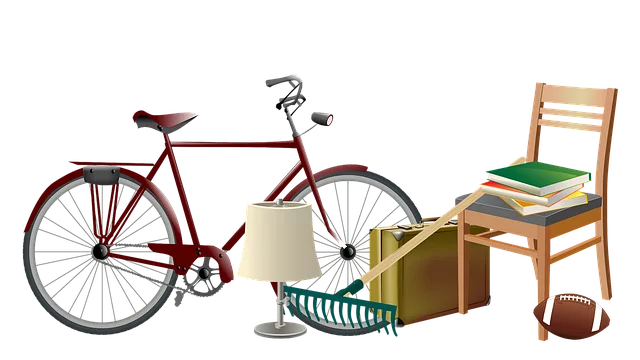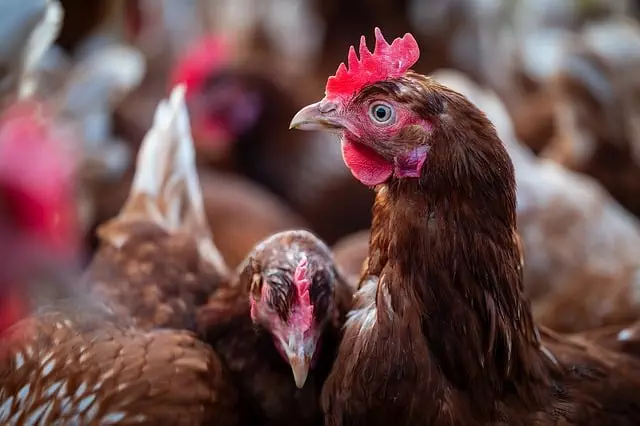Yard waste removal and recycling programs are crucial for environmental sustainability, as they effectively manage organic materials like leaves, grass clippings, and garden debris. These initiatives transform waste into nutrient-rich compost or mulch, which enhances soil health, reduces the need for chemical fertilizers, and supports biodiversity in plant life. By diverting yard waste from landfills, these programs prevent methane emissions, a potent greenhouse gas, and conserve landfill space. Municipal services play a key role in maintaining community cleanliness and promoting sustainable practices. Advanced mulchers, now equipped with automation and intelligent systems, efficiently shred yard waste into beneficial mulch while minimizing labor costs and operational downtime. Homeowners can contribute to these efforts by adopting effective leaf mulching techniques, which not only simplify disposal but also enrich the garden ecosystem. Yard waste removal and recycling not only streamline waste management but also directly support healthier yards and communities, in line with broader environmental objectives. These practices are a cornerstone of sustainable urban living, offering tangible environmental benefits and aligning with the principles of Yard Waste Removal and Recycling.
Managing yard waste effectively is pivotal for maintaining a healthy landscape and preserving environmental integrity. This article delves into the intricacies of leaf collection and mulching, highlighting their significance in sustainable yard maintenance. We explore the components that constitute yard waste, its importance, and the role of efficient leaf mulching techniques for homeowners. Additionally, we examine municipal programs dedicated to yard waste removal and recycling, showcasing the benefits these initiatives bring. With advancements in technology, modern mulchers are transforming yard waste into valuable resources, which can enhance soil quality and reduce landfill use. We provide practical tips for managing and composting yard waste effectively, ensuring a sustainable approach to keeping your yard pristine while contributing positively to the environment.
- Understanding Yard Waste: Components and Importance
- The Role of Leaf Collection in Sustainable Yard Maintenance
- Efficient Leaf Mulching Techniques for Homeowners
- Municipal Yard Waste Removal Programs and Their Benefits
- Advanced Mulchers and Modern Technology in Yard Waste Recycling
- Tips for Effective Yard Waste Management and Composting Practices
Understanding Yard Waste: Components and Importance

Yard waste is a significant component of overall waste that includes organic materials such as leaves, grass clippings, brush, and garden debris. Proper management of this type of waste through yard waste removal and recycling is crucial for maintaining environmental health and promoting sustainable practices. These organic materials can be transformed into valuable resources through composting or mulching, which enriches soil and reduces the need for chemical fertilizers. Understanding the composition of yard waste is essential to effectively manage it; leaves, for instance, are rich in carbon and serve as an excellent balance to nitrogen-rich grass clippings in a compost pile. Similarly, woody branches and twigs can be chipped into mulch, which suppresses weeds, retains soil moisture, and improves soil quality over time. Yard waste removal and recycling programs not only divert these materials from landfills but also return nutrients back into the earth, supporting the growth of new plants and trees, and ultimately contributing to a healthier ecosystem. These initiatives are increasingly recognized for their role in reducing greenhouse gas emissions through the management of organic matter that would otherwise decompose anaerobically in landfills, releasing methane, a potent greenhouse gas. By engaging in yard waste recycling, communities can significantly decrease their environmental footprint while simultaneously creating beneficial products for gardening and landscaping.
The Role of Leaf Collection in Sustainable Yard Maintenance

Leaf collection and yard waste removal play a pivotal role in maintaining sustainable yards by efficiently managing organic waste. As autumn leaves fall, municipalities and private services offer specialized leaf collection programs. These initiatives not only keep yards tidy but also contribute to the health of ecosystems. By removing fallen leaves, homeowners prevent the formation of thick mats that can suffocate grass and promote disease. Moreover, these collected leaves can be recycled into nutrient-rich compost or mulch through yard waste recycling programs. This process enriches soil, reduces the need for chemical fertilizers, and supports the growth of diverse plant life. Furthermore, such programs minimize yard waste from entering landfills, thereby reducing methane emissions and conserving landfill space. The decomposition of organic matter in a controlled environment also contributes to soil carbon sequestration, further enhancing the sustainability of yard maintenance practices. Homeowners who utilize leaf collection and mulching services not only enjoy well-maintained yards but also contribute to broader environmental goals, fostering healthier communities and ecosystems.
Efficient Leaf Mulching Techniques for Homeowners

Homeowners can significantly enhance their yard waste removal and recycling efforts by adopting efficient leaf mulching techniques. Leaf mulch not only enriches soil but also reduces the volume of yard waste that needs disposal. To begin, selecting the right mulcher is crucial. Handheld or electric mulchers are ideal for smaller yards due to their portability and ease of use. These devices can quickly transform leaves into nutrient-rich mulch, which can then be spread across garden beds. For larger properties, a gas-powered leaf vacuum or a chipper/shredder combination machine can handle larger volumes more efficiently.
Proper technique is essential for optimizing the mulching process. Dry leaves yield better results as they shred more easily. Before mulching, ensure leaves are free of debris and moist but not wet. This balance allows the mulcher to cut the leaves effectively without clogging or overworking the machine. After mulching, distribute the resulting material evenly around plants, being careful not to cover plant stems directly, as this can lead to rot. Additionally, ensure that the mulch layer is not too thick; a 2 to 3-inch depth is ideal for most applications. Employing these efficient leaf mulching techniques not only contributes to sustainable yard waste removal and recycling practices but also fosters a healthier garden ecosystem.
Municipal Yard Waste Removal Programs and Their Benefits

Municipal yard waste removal programs play a pivotal role in maintaining the health and aesthetics of communities. These initiatives are designed to collect and recycle organic matter such as leaves, grass clippings, and garden trimmings. By offering specialized collection services during specific seasons, municipalities facilitate the proper disposal of yard waste, which would otherwise contribute to landfill waste. This not only improves the efficiency of waste management systems but also promotes soil health through composting. The organic material collected is often processed into nutrient-rich compost, which residents can utilize for gardening and landscaping. This practice enriches the soil with essential nutrients, reduces the need for chemical fertilizers, and supports sustainable land use practices. Participants in these programs benefit from cleaner environments, reduced pest issues due to proper disposal of yard waste, and contribute to a more sustainable community. The recycling aspect of yard waste removal also helps in reducing greenhouse gas emissions by diverting organic matter from decomposing anaerobically in landfills, where it would release methane, a potent greenhouse gas. Thus, these programs are not only convenient but also environmentally responsible and conducive to fostering a sustainable urban landscape.
Advanced Mulchers and Modern Technology in Yard Waste Recycling

Modern advancements in yard waste removal and recycling have significantly improved the efficiency and sustainability of maintaining healthy landscapes. The integration of advanced mulchers into the process is a testament to human ingenuity in addressing environmental challenges. These sophisticated machines are designed to transform yard waste, such as leaves and grass clippings, into nutrient-rich mulch that can be reintroduced into the soil, thereby closing the loop on the organic matter cycle. By utilizing high-speed blades and finely tuned mechanisms, these mulchers shred and process organic material into fine particles at an unprecedented rate. This not only accelerates the decomposition process but also reduces the volume of waste requiring disposal. The result is a consistent, homogenous mulch that enhances soil quality, conserves water, and supports plant growth.
Furthermore, the advent of modern technology has revolutionized the way municipalities and private landscaping services approach yard waste recycling. With the integration of automation and intelligent systems, these advanced mulchers can operate with minimal human intervention, ensuring consistent output and reducing labor costs. The use of sensors and data analytics allows for real-time monitoring of performance and maintenance needs, optimizing operational efficiency and longevity. Additionally, these technologies are often equipped with features that reduce noise pollution and emissions, making them environmentally friendly options for managing yard waste. As a result, the integration of advanced mulchers and modern technology into yard waste removal and recycling not only streamlines the process but also contributes to eco-friendly practices and supports the broader goals of sustainable waste management.
Tips for Effective Yard Waste Management and Composting Practices

Proactive yard waste management is key to maintaining a healthy landscape and protecting the environment. To ensure effective removal and recycling of yard waste, it’s important to start with proper segregation at the source. Organic materials such as leaves, grass clippings, and garden trimmings can be composted, which not only reduces the volume of waste but also creates nutrient-rich soil amendments for your gardens. Composting these materials breaks down organic matter into usable material, reducing the need for chemical fertilizers and improving soil health. When composting, maintain a balanced mix of green (nitrogen-rich) and brown (carbon-rich) materials to encourage beneficial microbial activity and aerate the pile regularly to facilitate decomposition.
Yard waste removal services often offer mulching as an alternative to composting, which can be particularly useful for managing large volumes of leaves and trimmings. Mulching these materials on-site can return valuable nutrients to your soil, suppress weeds, retain soil moisture, and improve soil structure. When using yard waste collection services, ensure that you adhere to local regulations regarding yard waste disposal. Many municipalities offer specialized yard waste recycling programs that convert organic waste into compost or mulch, which can then be made available to residents at a reduced cost or even for free. By utilizing these services and practices, you contribute to sustainable waste management and create a beneficial cycle of nutrient return to your yard.
Effective yard waste management plays a pivotal role in maintaining healthy landscapes while contributing to sustainable practices. This article has explored the multifaceted aspects of yard waste, emphasizing its components, importance, and the environmental benefits of leaf collection and mulching. Homeowners can harness efficient mulching techniques to recycle yard waste effectively, which aligns with municipal yard waste removal programs designed to enhance community sustainability efforts. Advanced mulchers and modern technology have transformed yard waste recycling into a streamlined process, benefiting both the environment and our communities. By implementing these practices, we can collectively improve yard waste management, ensuring a greener, more sustainable future for our environments. Yard Waste Removal and Recycling are not just programs but vital services that support ecological balance and promote resource conservation.


